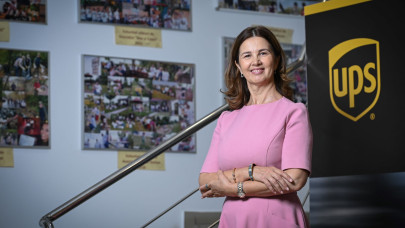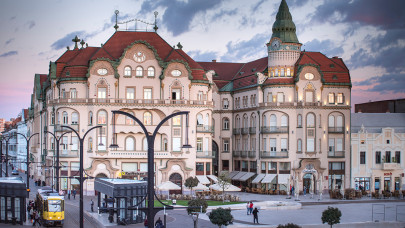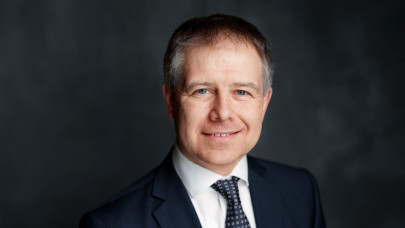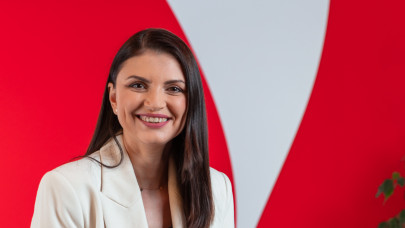What are the company's sustainability plans for 2023? What measures are you planning to take to decrease carbon emissions?
As a global leader in innovative and sustainable building materials, Holcim as a group is at the forefront of decarbonizing buildings throughout their lifecycle to ensure a net-zero future, building progress for people and the planet.
In 2020 Holcim became the first company in our industry with Net-Zero Pledge and Science-Based targets for 2030 and 2050 and all the activities in all the countries where Holcim is present concur to achieve these targets.
In 25 years of activity in Romania, we managed to decrease the CO2 emissions per ton of cementitious material by 25% and to increase the energy efficiency of our processes by 25% compared to the initial stage of the operations when Holcim started business in Romania.
In 2023 and further on, we will continue to decarbonize buildings for a net-zero future, from our operations to our products all the way to buildings in use. During 2023-2030 we aim to create and deliver to our clients more products and solutions with lower carbon footprint, to increase circularity and further reduce the use of natural raw materials and traditional fossil fuels by safely transforming waste into alternative resources, to further accelerate the green energy deployment and work together with all stakeholders to a greener society.
What amounts of investment is the company preparing to achieve sustainability goals in 2023 and in the following years?
At ground level, worldwide we are working on a range of next-generation technologies, from digitalization and artificial intelligence to breakthrough solutions like magnetizable concrete enabling road surfaces to recharge electric vehicles, all the way to over 30 pilot projects in carbon capture, usage and storage. Holcim, as a global company, dedicates more than 80% of its innovation resources to developing sustainable products and solutions.
Besides that, each country, at the local level, invests constantly in decarbonizing on four levels: through green operations, through decarbonizing the way of building - by building better with less, through circular constructions by building new from old, carbon capture and storage, green energy solar and last but not least, decarbonizing cities by making buildings greener.
This month, the European Union (EU) Innovation Fund announced funding of €328 million in two Holcim decarbonization projects at the Financing Innovative Clean Tech Conference in Brussels. The grants will accelerate the development of Holcim's breakthrough carbon capture utilization and storage (CCUS) projects in Germany and Poland. These projects are part of Holcim's net-zero roadmap, including over 50 CCUS projects worldwide, to decarbonize its business. They contribute to the EU's Green Deal, putting clean technologies to work for a climate-neutral economy by 2050.
What are the biggest challenges in terms of achieving sustainability goals in Romania?
As no single company can reach net zero alone, our targets cut across our entire value chain, from our suppliers to customers, to make a difference together.
Circularity is the biggest opportunity in 2023, and applying circular economy principles in building and creating new from old is the future of our industry. There are still plenty of challenges in Romania in terms of circular economy implementation, starting from a still in delay nationwide separate waste collection to the development of norms and standards and an increase in the demand for circular products and materials, and infrastructure. On the other hand, increasing the percentage of railway transport could contribute to a significant decrease in CO2 emissions.
Sustainability is still a relatively new concept for the public, and one of the challenges is to raise awareness of the importance of building sustainability and attracting partners on our way to accelerating green growth.
We believe that through communication, sharing of best practices and raising awareness, we have better chances of achieving a carbon neutral, circular in resources and inclusive for all future. Sustainability objectives are not just about a company and its goals, they are about all of us as a society coming together for a bigger purpose.
Such an example of best practice sharing and raising awareness on sustainability is Net Zero Podcast, developed in Romania, where we invite pioneers and leaders in sustainability to share their experiences and inspire others to make the transition from conventional building to building sustainable.
As Romania is a border country for Europe's single market, the imports of cement and other construction materials from non-EU, therefore from less regulated countries, is another challenge for achieving overall sustainability goals in the construction industry.
How, in your opinion, the cement industry is doing in Romania compared to other countries when it comes to achieving sustainability goals?
Romania is transitioning at a fast speed to a greener built environment, and so does the industry. In terms of cement products and solutions, I would say that Romania is keeping up very well compared to other countries when it comes to achieving sustainability goals, and moreover when it comes to Holcim cement plants, which are ones of the most modern and performant in Europe and across all Holcim plants worldwide.
As part of the construction industry, we still have to learn from the western countries, at least in terms of public awareness and adoption of circular economy practices, for example on the waste co-processing in the cement industry or on construction and demolition waste management in order to build better with less natural materials and with a lower impact on the environment.
How supportive is the regulatory environment in Romania for companies wanting to invest in sustainability? How would you describe the collaboration with the authorities?
Despite the often changing political environment, the regulatory environment developed significantly in the past years, in alignment with the European one, increasing the requirements for proper waste management. At the same time, in Romania, our industry is fully capable and owns modernized operations through which it can ensure proper national waste management solutions for the local waste to be safely co-processed and diverted from storage. The progress regarding the regulatory environment also includes the circular economy, decreasing the carbon intensity of economic activities and making the transition to greener energy and a greener built environment.
Nevertheless, there is still a need for institutional development towards openness and transparency in order to increase the ability of knowledge sharing and transfer between companies and various authorities, but also between and within various authorities. Only then Romania will be enabled to better cope with the continuous improvement towards a sustainability regulatory environment, but also with innovation and technological developments in a fast-moving toward circularity and carbon neutrality world.













